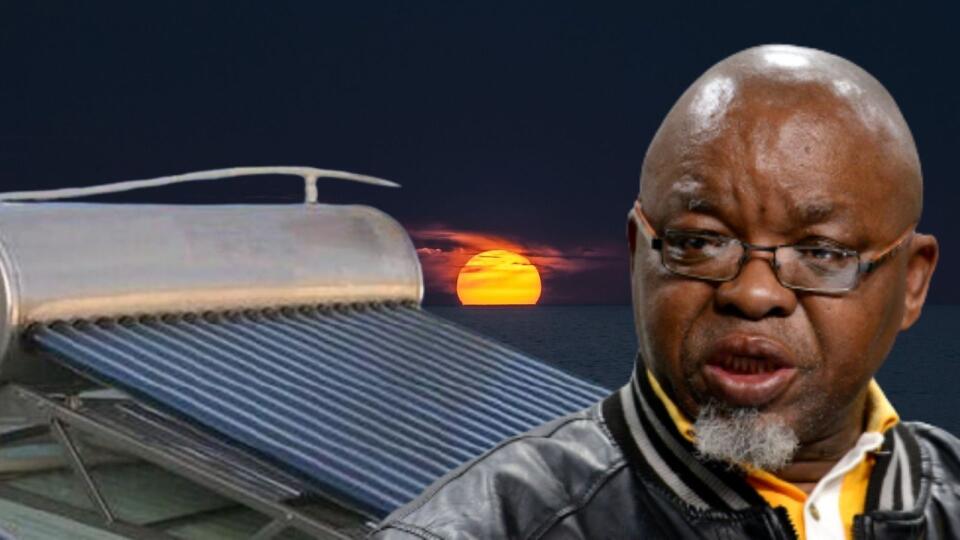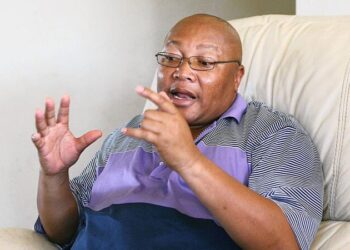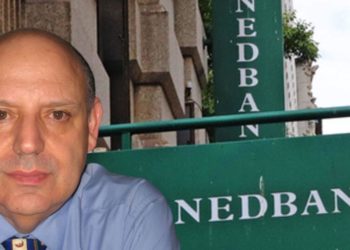The more than 11-year-old National Solar Water Heating project should have haunted corrupt or incompetent officials of the Department of Energy but, clearly, no one has been held accountable as authorities do not seem to have an appetite to act.
WHILE President Cyril Ramaphosa keeps emphasising his commitment in the fight against malfeasance, not a finger has been lifted over the years to apprehend government officials involved in wasting R300 million or even more on the failed solar water heater project.
There is overwhelming documented evidence of the collapse of the Department of Energy’s project, which involved installing about 87 000 geysers in households across the country, resulting in wasteful expenditure.
Many of the gadgets were never installed but kept in private warehouses, at the cost of R300m to taxpayers.
The more than 11-year-old National Solar Water Heating (NSWH) project should have haunted corrupt or incompetent officials of the Department of Energy but, seemingly, no one has been held accountable because authorities do not seem to have an appetite to act.
Why purchase the items if there is no plan to install them on the roof of beneficiaries’ homes.
Parliament’s energy portfolio committee members have confronted the department, demanding it determine whom among its officials should take the fall for this maleficent.
Keeping it under wraps
Apparently, just a few South Africans know about the NSWH scandal as the ruling party MPs and their opposition counterparts have not made much noise about it. For instance, when approached, UDM leader Bantu Holomisa declined to comment, saying he did not know anything about the matter, meaning that it had not been discussed by the caucus of his corruption-busting party.
The matter is at risk of being forgotten as not even anti-corruption lobby groups have pressured the government to come clean and take action.
Clarity-seeking questions were sent to the department but none of its communication officials bothered to respond.
Having investigated the matter, committee chairperson Zet Luzipho had concluded that the project might have been created with good intentions, but it landed in the hands of the officials whose ulterior motive was nothing other than to “chow public funds”.
“We must not beat about the bush when wrong things are done. There must be consequences. That is what we have said to them (the department).
“One of the things I always say is frustrating in the public service is that people do as they wish, and now you cannot even find the person (responsible for the wrongdoing). This is where we have drawn the line to say: ’Ggive us the people who were responsible for the project’,” said Luzipho.
1 million units
The NSWH project dates from 2009, when then energy minister Dipuo Peters announced that embattled state-owned entity Eksom would install a million solar water heaters in households and business premises.
In 2015, the department took over the responsibility of as Eskom had installed only about 400 000 units.
Peters, in her budget vote speech on June 23, 2009, said: “The department will ensure that one million solar water heaters are installed in households and commercial buildings over a period of five years.”
However, the department failed to exceed Eskom’s performance.
The aim of the project was to reduce energy consumption as the solar water heaters were not going to draw power from the Eskom grid. The expected result was to reduce greenhouse gas emissions and create employment.
After taking over from Eskom, the department procured 87 000 solar water heaters to continue the project but installed only 7 000 of them. The rest were kept at warehouses owned by the suppliers, at the state’s expense and to the tune of about R300m. The money would have been better spent on social needs.
This was all because the department had not made the necessary arrangements with municipalities and the Department of Human Settlements to have the items installed.
Wasteful expenditure
The portfolio committee had been grappling with the glaring wasteful expenditure, but law enforcement agencies have not been approached to probe the matter and apprehend the perpetrators.
Members of the portfolio committee suspect that certain department officials opted to keep the items in private storerooms, either out of pure incompetence or corruption.
On a few occasions, the media had reported on this but the reports have failed to attract attention from the law enforcement authorities.
In May, when answering questions at the National Council of Provinces, Energy Minister Gwede Mantashe described it as a disaster, but also without a push to bring those accountable to book. It has been reported that the solar water heaters had been stored at a storage cost of more than R8m a month.
Worse, Itakane 38 t/a iSolar (Pty) Ltd, which was contracted to supply 5 100 units at a cost of R38m for part of the Western Cape. Some of the geysers were then stolen from its warehouse. When the department started the process of recovering the stolen goods, the company told the department that it was under liquidation.
Luzipho admitted that no legal action had been taken against the department’s officials.
The standing committee on public accounts chairperson Mkhuleko Hlengwa declined to comment as the matter had not been reported to his committee.
“We try to respect their space because it is a policy issue and, generally for us, we will deal with issues at the end of each financial year as and when it is raised by the auditor-general. So, that matter has not come to us at this point in time,” said Hlengwa.
Increased loss of public money
However, in his 2018/2019 consolidated general, the now late auditor-general Kimi Makwetu remarked that the storing of the geysers at the suppliers’ facilities had increased the loss of public money, resulting in fruitless and wasteful expenditure.
According to its 2019/2020 annual report, the Energy Department admitted that most of its fruitless and wasteful expenditure was caused by additional storage costs of solar water heaters that were procured but never installed.
The report also revealed that the department had, in three months of the 2018/2019 financial year, spent more than R6m on eight consultants who were conducting technical feasibility assessment under the NSWH programme.
It expressed concerns about the continuing fruitless and wasteful expenditure in the solar water heating project, coupled with the risk of litigation by service providers. The national treasurer was also mandated to investigate.
Luzipho said the committee had, since 2019, been trying to establish who initiated the purchase of the geysers without planning to install them.
“From the conceptual stage, it was a wrong model because they wanted these geysers on the rooftop. So, why would you pay for storage, you cannot pay for storage,” said Luzipho.
Scratch the project
The department’s failure had caused some of the portfolio committee members to call for the project to be scrapped. Others wanted it to continue as its intentions were good although mishandled.
The committee had not established how much the department spent purchasing the now-idle items.
Actom (Pty) Ltd and Itakane are only two of the known manufacturers that had supplied the geysers to be distributed to various municipalities in the Western Cape.
The department later decided to relocate the geysers to its own facilities under the Strategic Fuel Fund, municipal halls, Energy Foundation, and PetroSA in Mossel Bay and Cape Town where they are said to be kept for free.
According to the department’s report, by March 31, 2020, there were 55 059 geyser units in the custody of the manufacturers.
Describing the appalling conditions they were kept under, Luzipho said that because of that, some geysers had elements that were no longer attached to them.
DA portfolio committee member Kevin Mileham said he was shocked when he and other committee members visited some of the state-owned storages to find the geysers being kept in appalling conditions.
“The storage conditions are not great. These things are just piled up in great big piles and are not stored particularly well,” said Mileham.
Luzipho said the department could not supply the committee with a list of suppliers “because some of them (suppliers) could not be traced”.
Luzipho said the handling of the geyser was an epitome of a series of malpractice in the Energy Department, including the Strategic Fuel Fund scandal, which should have led to the department appearing before the Zondo Commission. | Investigations Unit – investigations@inl.co.za/bongani.hans@inl.co.za


















